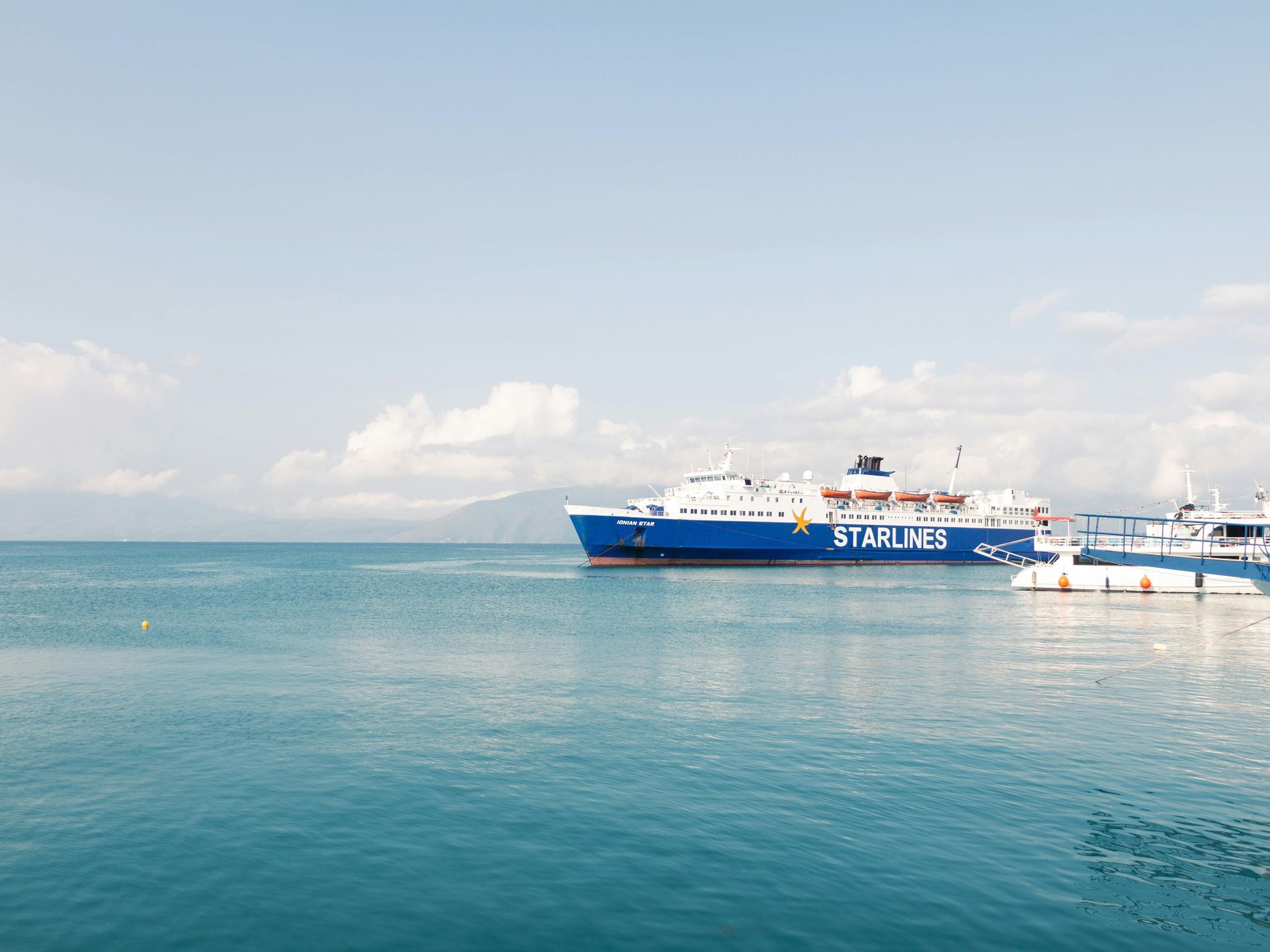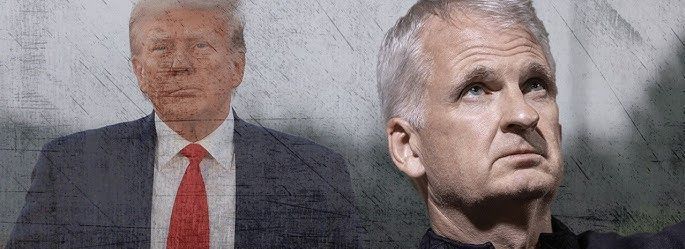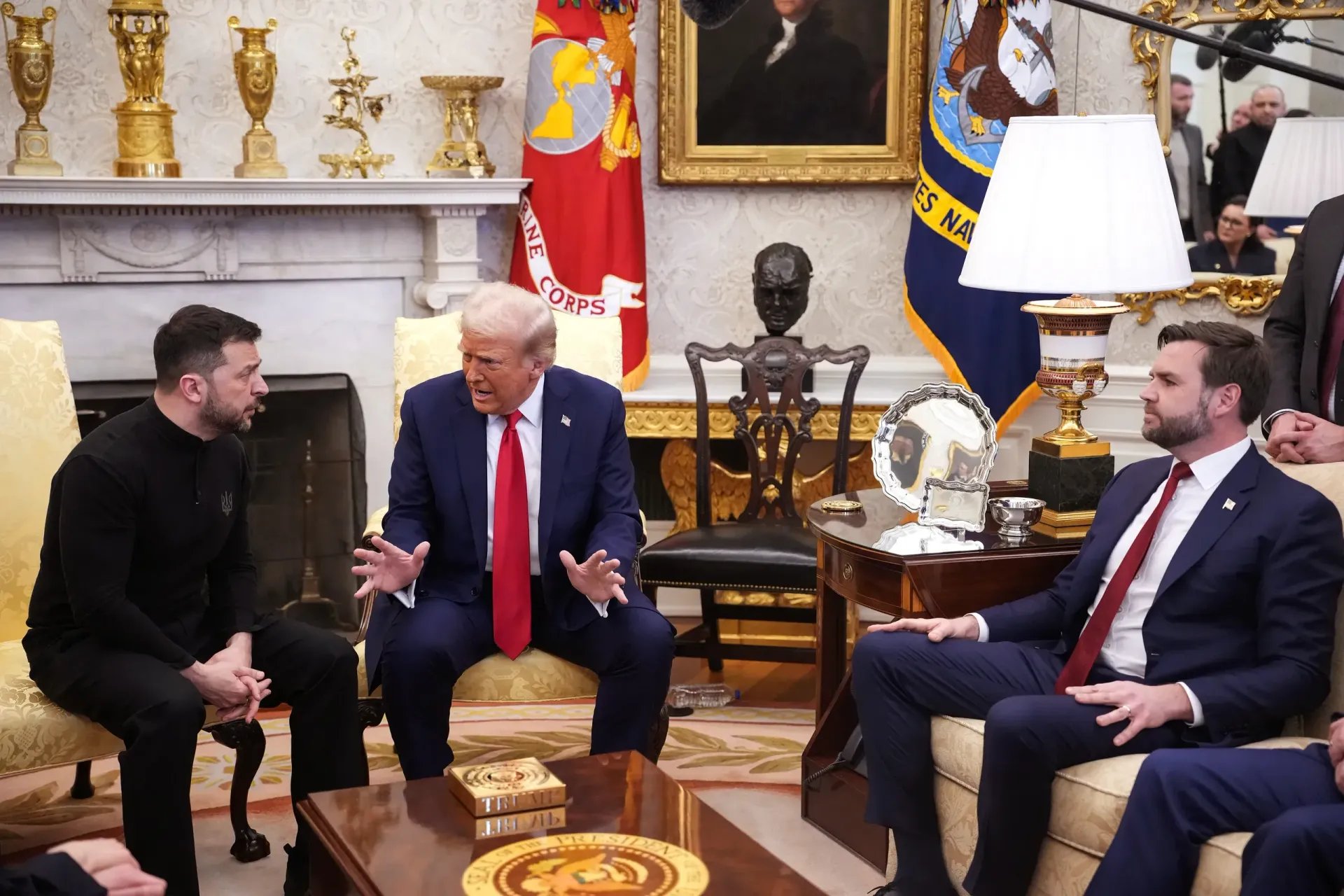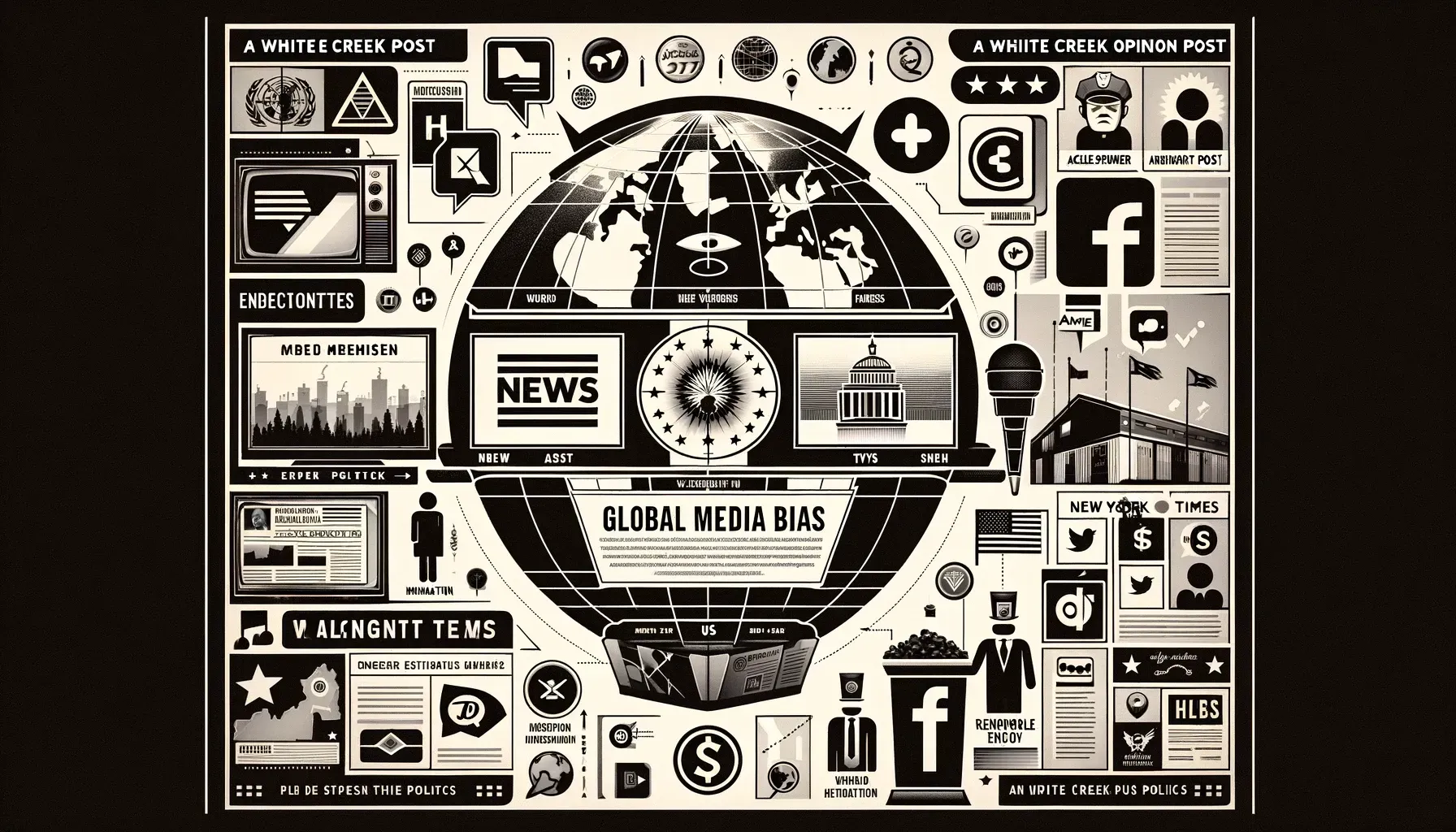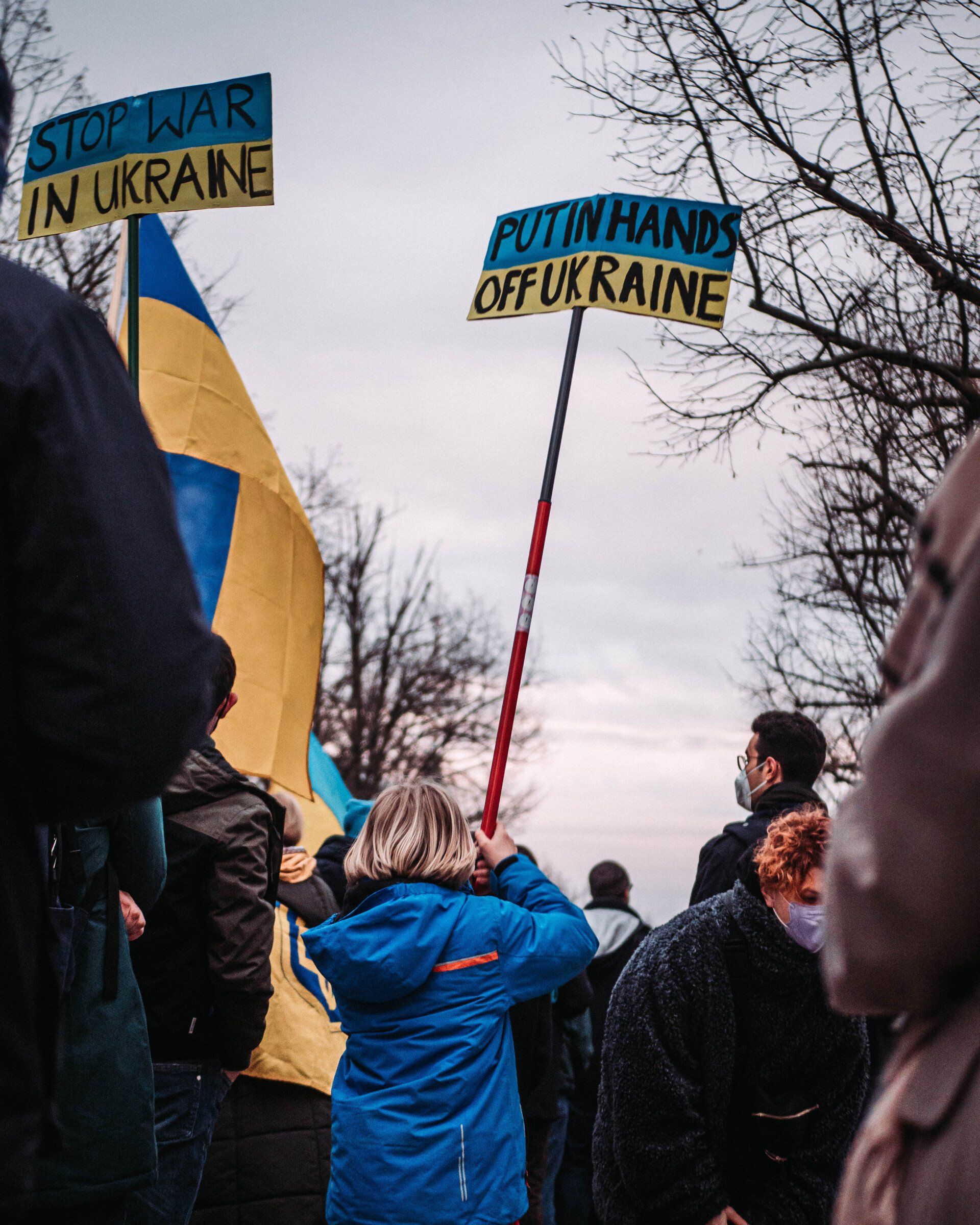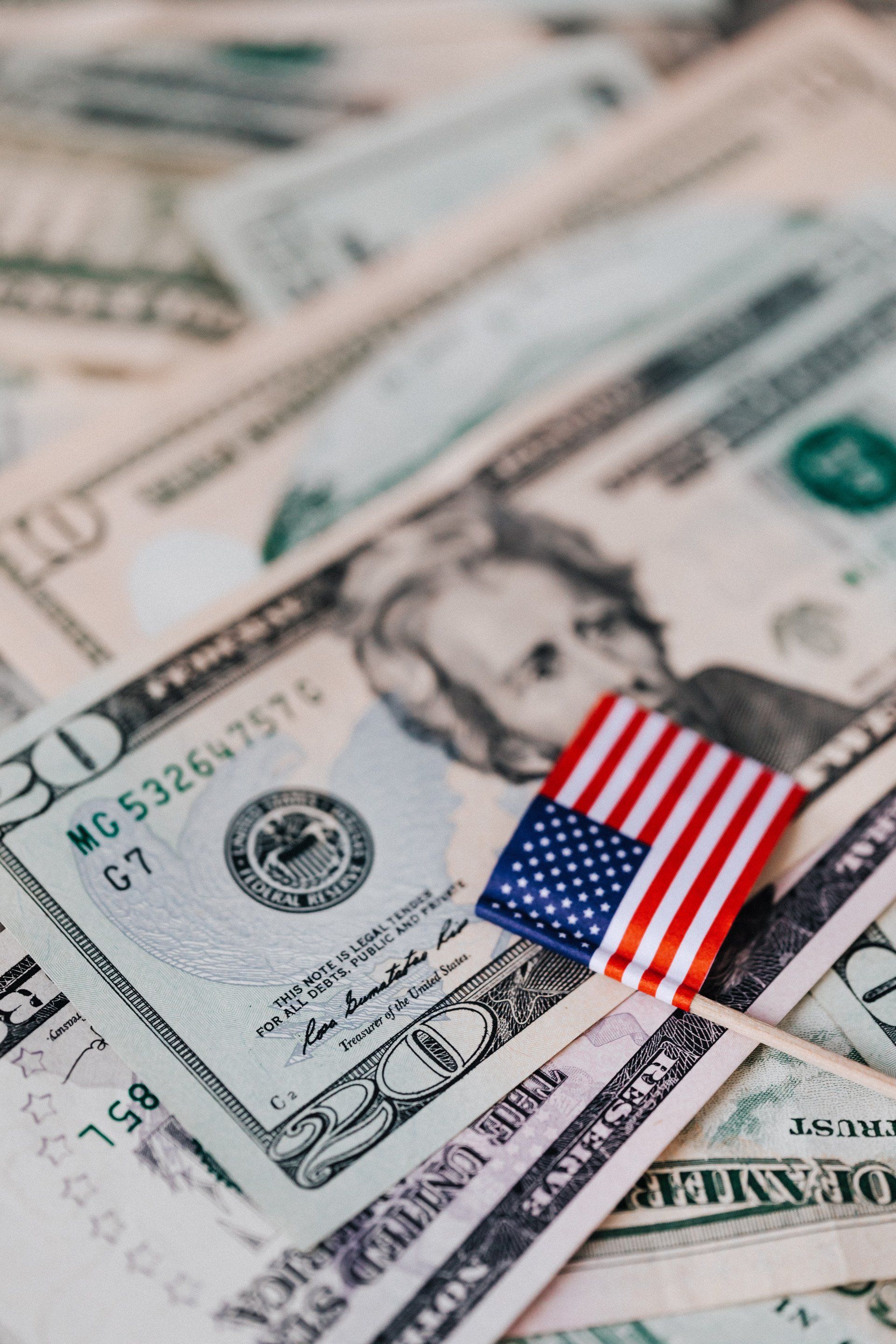Geopolitical Focus – February, 2024
Geopolitical Focus – February, 2024: The Elites and Democracy
The Elites and Democracy? The WEF, EU, UN, WHO, and countless others, all claiming to be democratic institutions serving the interests of the people. However, there's a common thread among them, forming a power structure that tends to control both people and territories.
The WEF 2024
boasted 2800 attendees from across the globe, including politicians, entrepreneurs, consultants, and various other representatives. The star guests were Vladimir Zelinsky and AI guru Sam Altman. But what about figures like Al Gore and John Kerry? Where are the lessons learned from the Covid era? The public remains skeptical. Let's set them aside for a moment.
The Forum’s new Global Cooperation Barometer
showed that global cooperation has been resilient for much of the past decade, particularly in the areas of trade and capital, innovation and technology, and climate and natural capital, but has been pulled down by a sharp decline in cooperation on peace and security. A new
white paper offered diverse ideas on what global cooperation can look like in a fragmenting world.
Perhaps the decline in peace and security is a deliberate choice made by the participants, driven by the desire to achieve greater hegemony, or at least as Zelinsky puts it.
Ukrainian President Volodymyr Zelenskyy announced plans for a potential global summit to push for peace and called for renewed investment in the country. “Strengthen our economy, and we’ll strengthen your security,” he told participants, adding that there will be growth in Ukraine once the war is over. More than 80 national security advisers from governments and international organizations met in Davos to advance a blueprint for peace in Ukraine at the Fourth National Security Advisors Meeting, hosted by Switzerland in collaboration with the Forum.
Unfortunately, peace talks, as he suggested, are unlikely to happen. If he looks at history and the current global scenario, he might struggle to keep himself safe. The rest of the WEF mainly consists of technocratic and autocratic statements, hoping that "representatives and the media" will spin them into democratic agendas back home.
Perhaps the best overview is
summarized here:
In Davos we hear so much about the enormous promises of technology – and these promises are certainly real. But technology might also disrupt human society and the very meaning of human life in numerous ways, ranging from the creation of a global useless class to the rise of data colonialism and of digital dictatorships.
Some are referring to the industry leading product producers as the magnificent five or seven: Apple, Microsoft, Amazon, Alphabet (Google), Tesla, Nvidia and Meta Platforms.
The Ukraine War has disappeared from the International Media but occasional reports about
corruption,
the CIA recruiting Russian dissenters to overthrow Putin with another Maidan Coup, and how
Russia is invading Sweden and
Finland. So does this make funding essential? What these individuals fail to mention is that the US signed a treaty with Finland to deploy weapons, potentially instigating another conflict similar to the situation in Ukraine. This move is justified through media sensationalism, jeopardizing over 50 years of peace between these nations. Additionally, Mr. Zelinsky expresses dissatisfaction with other
countries providing refuge to those who left the war for peace, only to face potential repercussions if caught at the border.
Is the triangle formed by Germany, the EU, and the US truly a lasting future relationship, or does it reveal a weakness and disorientation on the European side? Migration has been a shared challenge for all three, with open borders but a lack of concrete plans for integration or a legal foundation to control it. While liberal forces advocate for assistance, they simultaneously contribute to pushing their own people into poverty.
There is a unanimous stance that Russian frozen assets rightfully belong to Ukraine, even though they are funds belonging to Russian citizens, not the state. The primary distinction lies in the surging US economy (thanks to the war), while the EU/German economies are stuttering due to the consequences of the war, notably sanctions.
Despite a shared commitment to the green agenda, all three entities struggle with stagnant electric vehicle sales, ongoing issues with solar and wind energy, and an economic reliance on printed money. Additionally, they face challenges in securing raw material resources and long-term access to them.
However,
the driving force behind the unity is NATO, using the Ukraine War, which was instigated by the US, to force a military alliance to tie the EU to the US, divide and weaken Russia, to either split it up or destroy it politically. There is no political alignment in Europe; the
so-called Fascists by the Power Elite (note the AFD is what the Trumpers are in the US) are under attack by the current regimes in EU countries and the US, but especially Germany. All these democratic supporters (for them, it is a one-party state)
use all legal means and the press to force opinions and labels on the people. But no one wants peace with Russia; leave NATO where it belongs. Tell Zelinsky that Russia is a neighbor and at the same time integrate Russia into an extended Europe. Will there be local tribe conflicts? Yes, but not a war of destruction and death if you understand history. This war was all but avoidable, with one big beneficiary, the US; the rest of the world lost. And
Zelinsky is begging for crumbs; he still believes he can win, and no one reasons with him. Note, the world is not a win-lose game but a win-win, perhaps.
The U.S. recorded a new record in arms exports last year. With an increase of 16 percent, exports reached a total value of 238 billion dollars, as announced by the State Department on Monday. The sale of weapons is considered "an important foreign policy tool of the United States."
Here is an Interview
with a person who has experienced both sides of political systems and is respected in the West.
Ai Weiwei, the renowned Chinese artist, has compared the cancellation of his exhibition at the Lisson Gallery in London to the repressive measures taken during Mao Zedong's Cultural Revolution in China. In an interview
with Sky News on Sunday, the 66-year-old expressed his concern about what he perceives as political censorship in the West. "I grew up with this fierce political censorship," says Ai Weiwei. "I'm now realizing that people in the West are doing exactly the same thing today."
Chinese influence in Europe, but especially Hungary is growing,
with leading the Green Revolution with advanced technologies, and the process to flood the
European Market with E Cars, built in Hungary. Meanwhile the US and the EU spend money on Ukraine and NATO, consider if Putin were to intervene in Hungary, potentially sparking a war with China. The idea of invading Sweden or Finland seems impractical, given the abundance of snow, ice, and forests, all readily available in Russia. The conflict in Ukraine is perceived as a civil war, and perhaps it's best to let them find their own solutions. The US already has a significant military presence in the Middle East, close to Russia; there's no need to deploy forces to Ukraine for Zelensky's aspirations.
Hungary, a small, landlocked country of 9.6 million people, has emerged as an increasingly important production hub in Europe for automotive suppliers, particularly from China.
Chinese firms, such as battery giant CATL and carmaker Nio (NIO), have invested heavily in manufacturing in the country in recent years, alongside German competitors Mercedes, BMW and Audi. BYD already had a presence there, opening an electric bus facility in the city of Komárom in 2017.
With its new plant in Szeged, the company will gain free trade access for its passenger vehicles as well. And not just to Hungary — a longtime economic partner of China — but 26 other members of the European Union, according to Matthias Schmidt, a European autos analyst who leads the firm Schmidt Automotive Research.
It will also be able to reap “all the benefits that Western European countries provide at a fraction of the cost,” he told CNN, citing lower labor and energy costs in Hungary than those in other regional automotive hubs such as France or Germany.
While the site has likely been planned for years, experts say it is especially timely, because it will allow BYD to dodge European tariffs of 10% on cars imported from the world’s second largest economy, along with any further duties imposed as a result of an ongoing EU investigation into China’s state support for EV makers.
Regarding the
Build Back Better and other expenditures by the US government, it may take another 15 years to see the fruition of those well-paying jobs from US manufacturers. Additionally, the US is issuing threats of war to China over Taiwan.
Trina, like other Chinese solar giants here, is working to show it has good intentions. All of the U.S. unit’s 80-odd employees are U.S. citizens, Zhu says. The company plans to reinvest much of the money it makes into the U.S. market rather than send it back to China. Trina is trying to bring its suppliers to the U.S., and Zhu says he is “pretty sure” the company will decide to build a factory that makes solar cells—the building blocks of panels—here, too.
The U.S. market needs Chinese solar manufacturers for their technological know-how, ability to bring suppliers from China, capital and appetite for investment, Zhu says.
Zhu knows there is pushback from U.S. politicians on Chinese manufacturers. But he says “we’re not politicians. We just do the business.”
Israel's war with Hamas, retaliatory
strikes in sovereign states, two-state solutions, and sanctions on settlers in Gaza have led to a dispute on how to handle the conflict, resulting in more destruction and death, aiming to eradicate Hamas and causing collateral damage to about 30,000 civilians. Legitimized under the rules of engagement, the issue arises from the forced relocation of Palestinians, which is not Israel's business; it should instead control its settlers.
So, we have a US government seen as friendly to Israel, accumulating frequent flier miles but largely ineffective in diplomacy. The prioritization of domestic issues, including concerns about fascism, raises questions. The media's focus on reporting military successes lacks examination of why the US maintains military bases in Iraq, in contrast to Russian or Chinese approaches. The conflict doesn't seem to offer solutions, potentially fueling tensions without deterrence.
The US may
benefit economically from the war, aligning with a historical pattern where wars are advantageous, especially when others do the fighting—part of what some term "Bidenomics." Meanwhile, philosophical perspectives vary, with some viewing it as a
life-or-death task for humanity, while others criticize a situation where elites enjoy their cake while the deplorables starve.
